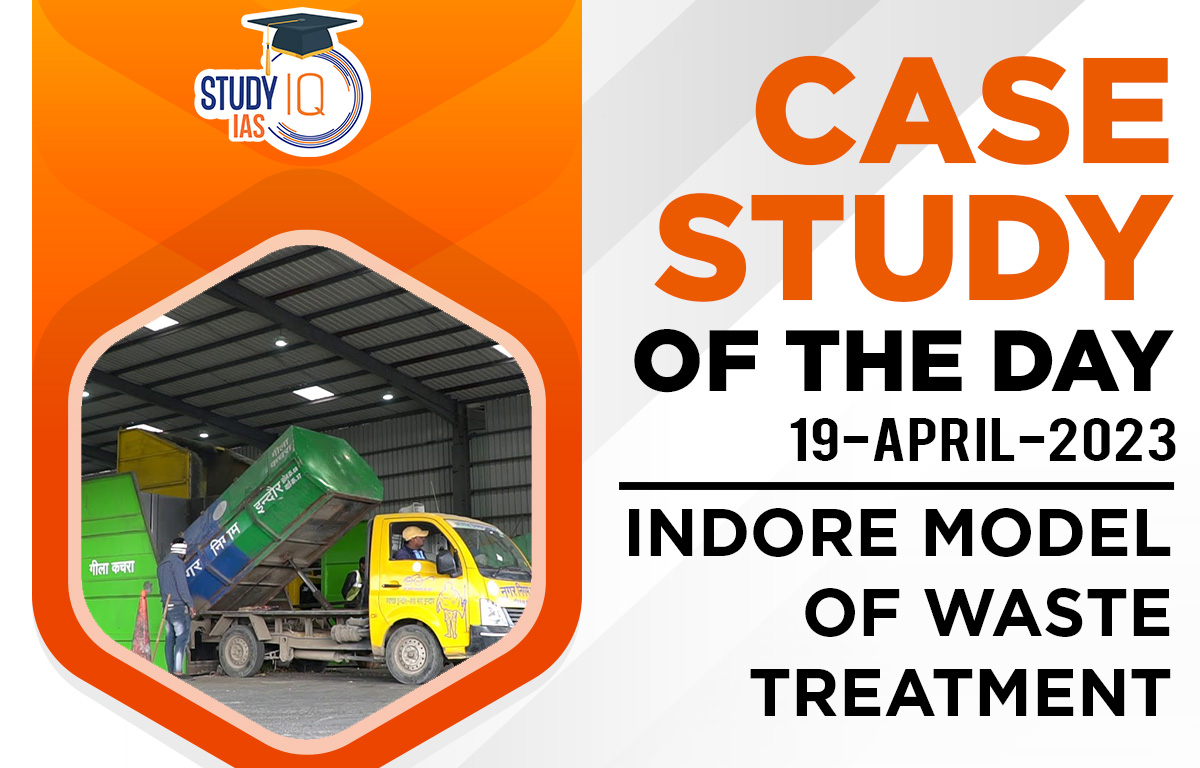Table of Contents
Context: A municipality in Kerala is looking at suitability of the Indore-model waste treatment plant for the civic body.
About the Indore Model
- The Indore Model of Waste Treatment Plant is a widely recognized and successful waste management model implemented by the Indore Municipal Corporation (IMC).
- It involves a comprehensive approach to managing waste in a sustainable and environment-friendly manner..
Features of the Indore Model
- Door-to-Door Collection: The IMC implemented a door-to-door waste collection system, where waste is collected from households and commercial establishments daily. This ensures that waste is collected regularly, and prevents it from accumulating in public places.
- Segregation: The collected waste is segregated into biodegradable and non-biodegradable waste. Biodegradable waste is sent for composting, while non-biodegradable waste is sent for recycling.
- Composting: The IMC established a composting plant that uses aerobic composting technology. The plant has a capacity to process 600 tonnes of biodegradable waste every day. The compost produced is used as a fertilizer in gardens and public spaces.
- Recycling: The non-biodegradable waste is sent to a recycling plant where it is sorted and processed. The plant can process up to 300 tonnes of waste every day and produces recycled products like plastic granules, paper, and metal.
- Public Participation: The IMC involved the public in the waste management process by creating awareness campaigns and incentivizing waste segregation. This led to increased public participation and reduced waste generation.
Benefits of the Model
- Environment-Friendly: The model is environment-friendly as it reduces waste sent to landfills and promotes recycling and composting.
- Cost-Effective: It is cost-effective as it reduces the cost of waste management and generates revenue through the sale of compost and recycled products.
- Employment Generation: The model has created employment opportunities for the local population, especially in the recycling plant.
- Public Health: It has improved public health by reducing the risk of diseases caused by waste accumulation in public places.
Conclusion
- The model’s comprehensive approach to waste management, involving door-to-door collection, segregation, composting, and recycling, has made it an effective and environment-friendly model.
- The model’s benefits, such as cost-effectiveness, employment generation, and public health improvement, have made it a sustainable and replicable waste management model.


 Bihar BPSC 70th Mains Result 2025 Out: C...
Bihar BPSC 70th Mains Result 2025 Out: C...
 Pax Silica Initiative: Meaning, Objectiv...
Pax Silica Initiative: Meaning, Objectiv...
 Tapanuli Orangutan: Habitat, Characteris...
Tapanuli Orangutan: Habitat, Characteris...

























